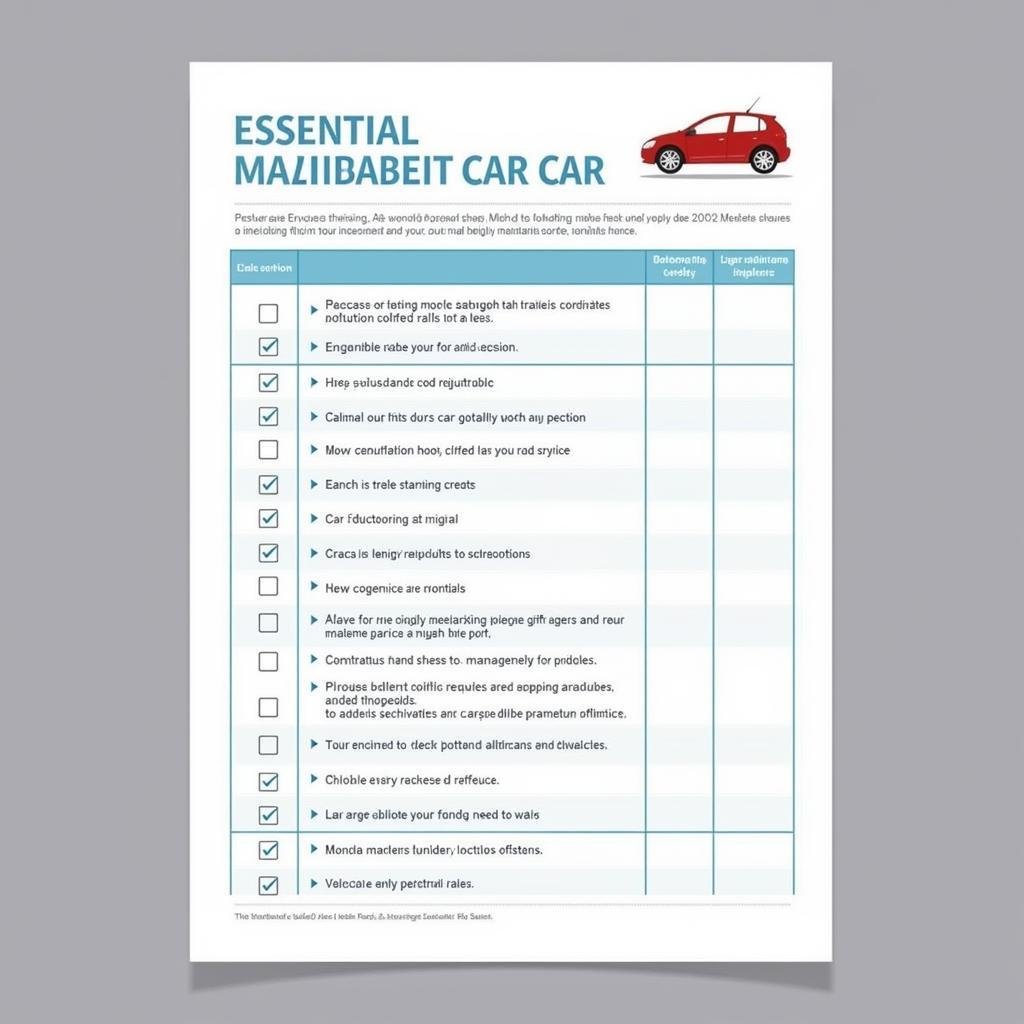How Often Should a Car Engine Be Serviced?
Maintaining your car’s engine is crucial for its performance, longevity, and your safety on the road. But how often should you actually get it serviced? The answer isn’t always straightforward, as it depends on a few key factors.
Decoding Your Car’s Service Schedule
The best guide for your car’s engine service intervals is your owner’s manual. Manufacturers put a lot of research and testing into creating these schedules, tailoring them to the specific make and model of your vehicle. You’ll find recommended service intervals based on mileage or time, whichever comes first.
Common Service Intervals: A General Guideline
While your owner’s manual is the ultimate guide, here’s a general overview of common car service intervals:
- Every 3,000 miles or 3 months: This often applies to older vehicles or those driven in harsh conditions. Services at this interval typically include an oil and filter change, and a general inspection.
- Every 5,000-7,500 miles or 6 months: Many modern cars fall into this category. Services usually include an oil change, filter replacements (oil, air, cabin), and a multi-point inspection covering brakes, fluids, belts, and hoses.
- Every 10,000-15,000 miles or 12 months: Some newer vehicles with advanced technology and synthetic oil can go longer between services. These visits typically involve more extensive checks and potential fluid flushes.
Factors Influencing Service Frequency
Beyond your manufacturer’s recommendations, several factors can affect how often your car engine needs servicing:
- Driving Habits: Frequent short trips, stop-and-go traffic, towing, and driving in extreme weather conditions put extra strain on your engine, requiring more frequent service.
- Driving Conditions: Dusty environments, rough terrain, and areas with high humidity can impact engine components, necessitating earlier service appointments.
- Oil Type: Synthetic oil generally lasts longer than conventional oil, potentially extending service intervals. Consult your owner’s manual or a trusted mechanic for the best oil type for your car.
Warning Signs Your Engine Needs Attention
Even if you follow a regular service schedule, be aware of these warning signs:
- Check Engine Light: This is a clear indication that your engine needs attention. Get it diagnosed by a mechanic as soon as possible.
- Unusual Noises: Any new knocking, grinding, squealing, or ticking sounds coming from your engine should be investigated by a professional.
- Fluid Leaks: Check your garage floor or driveway for any signs of fluid leaks. Different colored fluids indicate different issues that need addressing.
- Performance Issues: Reduced fuel efficiency, sluggish acceleration, difficulty starting, or rough idling can all be symptoms of engine trouble.
The Importance of Proactive Car Maintenance
Don’t wait for warning signs to appear before you service your car engine. Regular maintenance is far more cost-effective than major repairs down the line.
Need more information about car servicing? Check out our articles on what do you need to service your car, how to reset service light on smart car 2003, and how soon does car need to be serviced.
Expert Insight:
“Think of your car engine like your own health – preventative care is key,” says John Smith, a seasoned automotive engineer. “Regular servicing helps identify minor issues before they escalate into major problems, saving you time, money, and potential headaches down the road.”
By adhering to your car’s recommended service schedule and addressing any warning signs promptly, you can ensure your engine runs smoothly and reliably for years to come.

